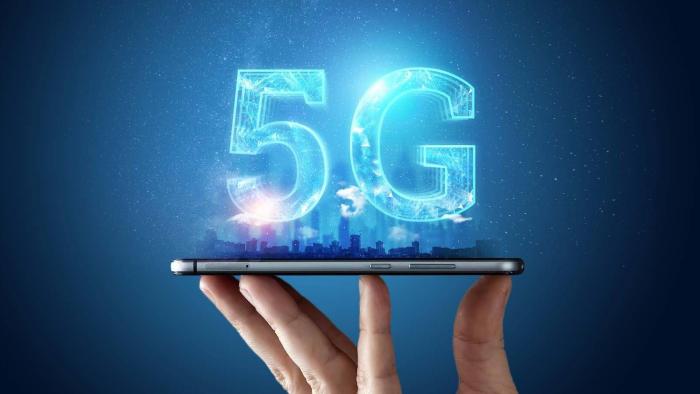The slow progress of the Angolan industry could take advantage of the new 5G technology to solve some technological barriers that prevent it from taking off. Issues such as energy management, optimization of supply chains or waste reduction are at the forefront of the solutions that 5G proposes to boost the industry worldwide.

Telecommunications are experiencing a real turnaround with the launch of 5G, a technology that wants to revolutionize our day-to-day and production systems. The differences for the older sister, 4G, are radical. The unprecedented levels of connection speed and data download put this wireless network at the level of the fiber optic cable mesh. Latency, the time that a device takes to execute an order since it is sent, and which is the major critical point of these connections, will be reduced 200 times, to just a millisecond. This giant leap gives us a good idea of the level of this technological advance.
The possibilities are many and are already being explored in countries like the United States, South Korea or China, where industries are at the forefront of 5G. The first results show that the new digital networks can be, for this segment, a powerful engine.
Smart energy
Energy efficiency is critical for industry around the world and in countries like Angola it is becoming more urgent. The optimization of energy resources, not only in this sector, but also in ordinary life, is one of the great opportunities that 5G brings us.
In the document “5G Green: Building a Sustainable World”, Huawei, together with the international consultant Analysys Mason, demonstrate that 5G wireless networks, combined with technologies such as the cloud, artificial intelligence and the so-called “Internet of Things” ( network of physical objects with integrated sensors for data collection), can have a significant impact in reducing energy consumption. Like? Automating production with artificial intelligence systems that predict possible inefficiencies and optimize available energy resources. By saving energy, not only are costs reduced, but carbon dioxide emissions are also reduced and, as such, the environmental impact of the industrial sector, one of 5G's great banners.
Practice confirms the theory. In China, for example, a mobile phone factory replaced the manual quality control system on the assembly lines with a network of smart cameras connected to a 5G wireless system. The implementation reduced energy consumption by 6% and increased inspection speed almost 20 times.
The results show that using mobile networks to create “smart energy” is possible. This characteristic, points to Huawei in “5G Green: Building a Sustainable World”, makes 5G networks the most sustainable ever.
Technology is money
Energy efficiency is measured not only by turning off or turning on lights, machines or generators. In an integrated sector such as industry, 5G also creates opportunities to reduce space (and expenses) in the physical environment. The key is hyper-connectivity, remote interconnection and even virtual or augmented reality, which can now be easily used to train workers in complex processes or to avoid unnecessary business trips. 5G solutions will also allow the operation of “virtual factories”, a set of interconnected and collaborative companies with global and highly flexible supply chains.
If there are many possibilities in the offices, it is on the factory floor that 5G will have the most visible impact. Machines, industrial robots, sensors, products and operators will be controlled remotely and in real time through the cloud. This interconnection will open the way for the so-called “smart factories”. The use of artificial intelligence “eyes” in the area of production and in the management of processes and supply chains will also give managers an enormous amount of information that will allow them to anticipate problems and make quick and assertive decisions. And all of this, for a fraction of the cost and current energy consumption. Fewer errors, lower expenses, higher revenues. Winning formula.
And what possibilities does Angola have to join this technological wave? Experts respond: 5G can give a boost to countries like ours, with weak technological infrastructure and a tasteless industrial park based on manual processes, above all. With this opportunity, they say, we will be able to skip steps, leaving behind expensive technological implementations, which 5G has already made obsolete. We saved time and moved faster.
This evolution requires time and investment, of course. And a lot of political will to facilitate cooperation between all stakeholders, bet on regulation and reduce barriers in terms of spectrum and infrastructure, reinforces the white paper that Huawei and Analysys Mason have just published. But the advantages are obvious: 5G will be able to integrate once and for all the nascent Angolan industry into a global network of the latest generation that connects people and machines, thus increasing profitability, production levels and energy efficiency. A way to boost business, while helping the environment to stop an announced ecological disaster.
Signed by Sílvio Almada | President of the Association of Internet Service Providers
Article Published in Jornal Mercado, September 11 edition, page number: 32, Opinion column. Published in MenosFios with permission of the author.








Our 4G operates at 3G speed, there is no point in evolving to 5G to give us 10Mbps speed is a waste of technology
In 2013: https://www.menosfios.com/angola-teste-de-cobertura-da-rede-unitel-4g/